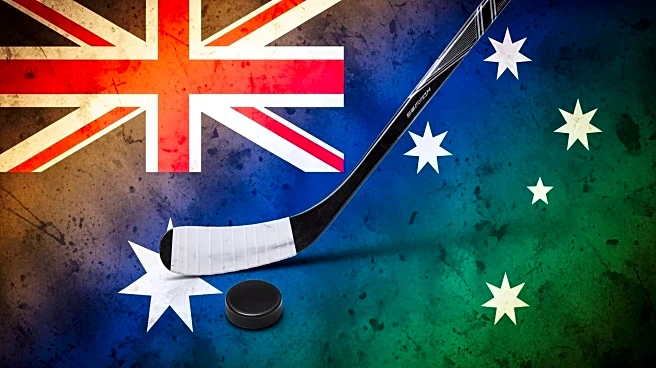What's Happening?
Nathan Walker, the first Australian native to play in the NHL, is actively working to increase the popularity of hockey in Australia. Since the 2023 NHL Global Series in Melbourne, which featured the Arizona Coyotes and the Los Angeles Kings, Walker has
observed a growing interest in the sport. Despite this, hockey in Australia faces significant challenges due to geographical, financial, and infrastructural barriers. The country has about 20 indoor ice rinks, a decrease from over 40 in previous years, largely due to high maintenance costs and land redevelopment pressures. Major cities like Sydney, Melbourne, and Brisbane have a few viable ice sheets, but accessibility remains a problem for many aspiring players. Walker emphasizes the difficulty of turning curiosity into access, as the cost of registration fees, ice rental, gear, and travel can be prohibitive.
Why It's Important?
The efforts to grow hockey in Australia are significant as they represent a push to diversify the country's sports culture, which is traditionally dominated by sports like football and soccer. Walker's initiative could lead to increased opportunities for young athletes and potentially foster a new generation of hockey players from Australia. This growth could also have economic implications, potentially leading to increased investment in sports infrastructure and tourism related to hockey events. However, the challenges of accessibility and cost must be addressed to ensure sustainable growth and development of the sport in the region.
What's Next?
Future developments may include increased collaboration between Australian hockey organizations and international leagues to provide more exposure and opportunities for local players. There could also be efforts to reduce costs and improve accessibility, such as subsidies for equipment and ice time. Additionally, the success of Walker and other Australian players in international leagues could inspire more young athletes to pursue hockey, leading to a gradual increase in participation and interest in the sport.
Beyond the Headlines
The growth of hockey in Australia could have cultural implications, potentially shifting the country's sports identity and increasing its presence in international hockey. This development might also encourage other non-traditional hockey countries to invest in the sport, leading to a more diverse and global hockey community. The challenges faced by Australian hockey highlight broader issues of accessibility and equity in sports, prompting discussions on how to make sports more inclusive and affordable.
















